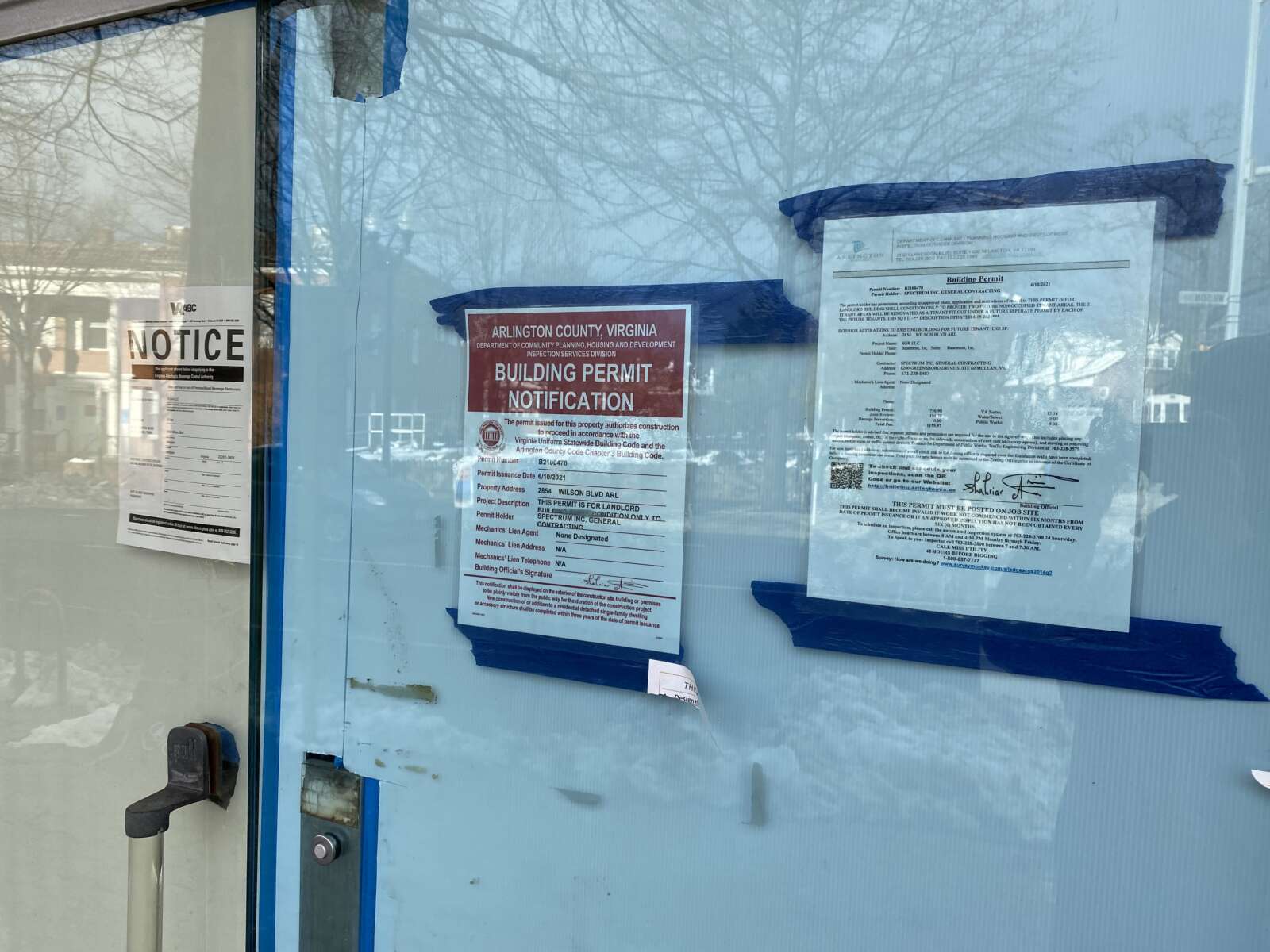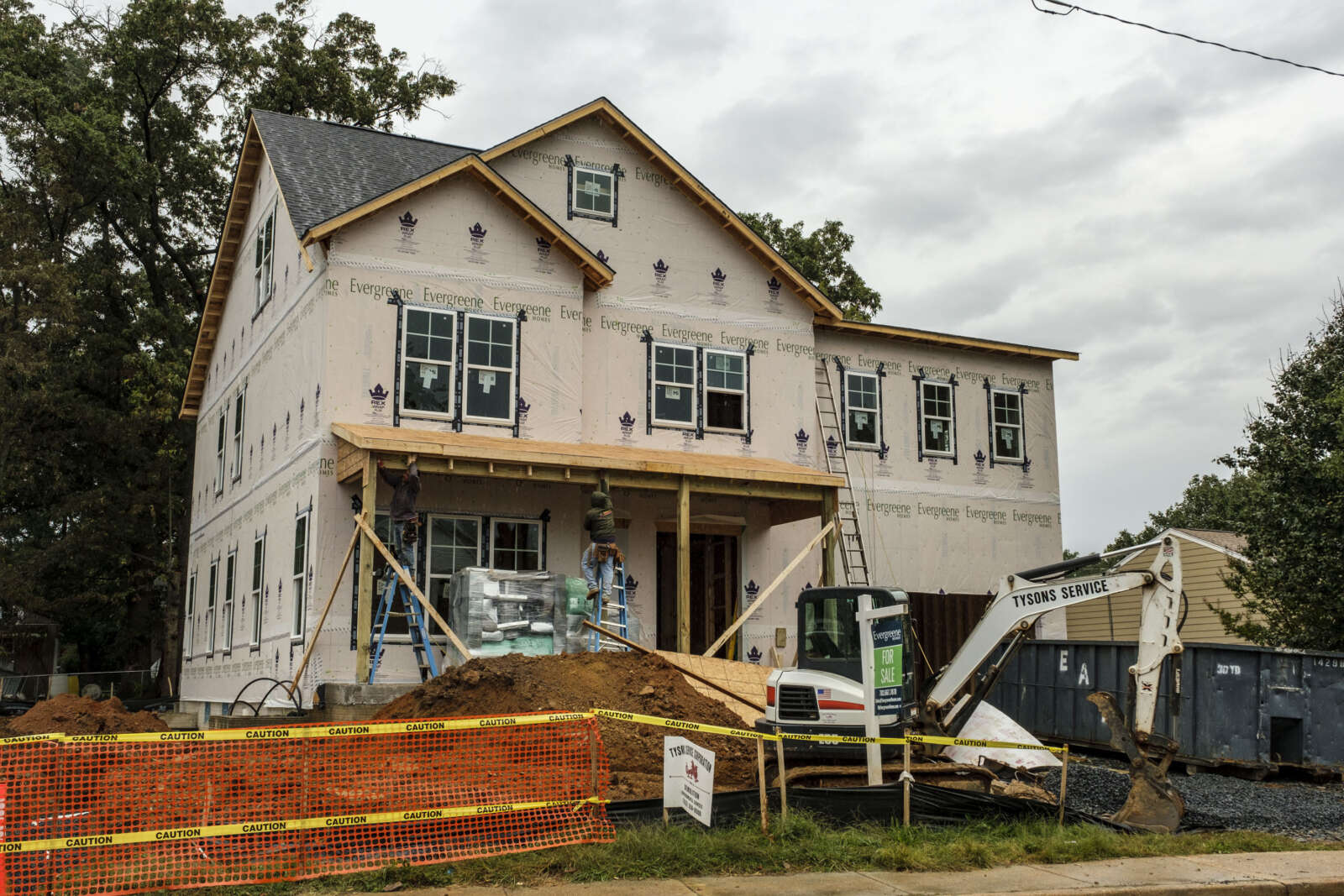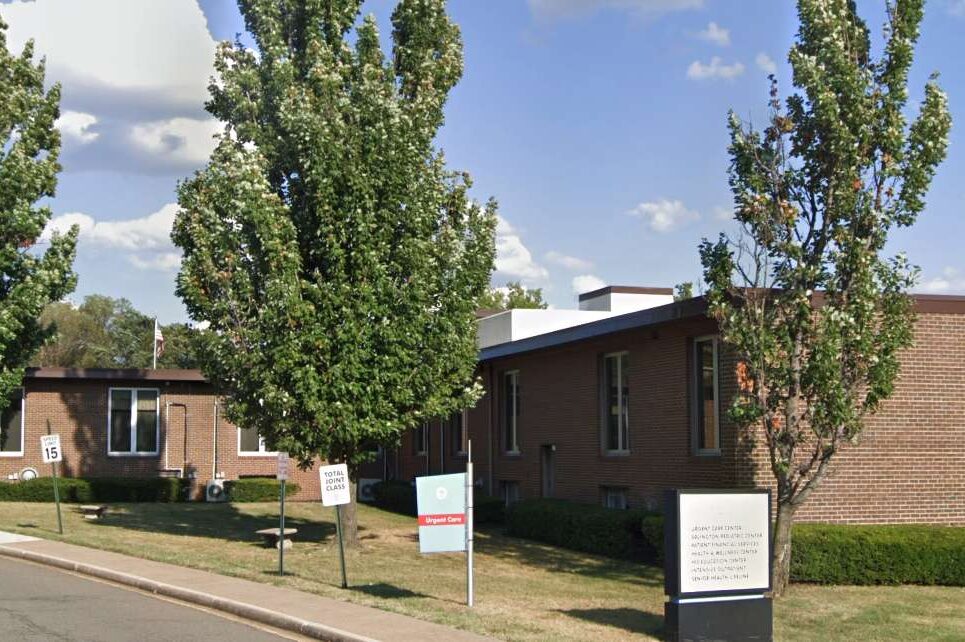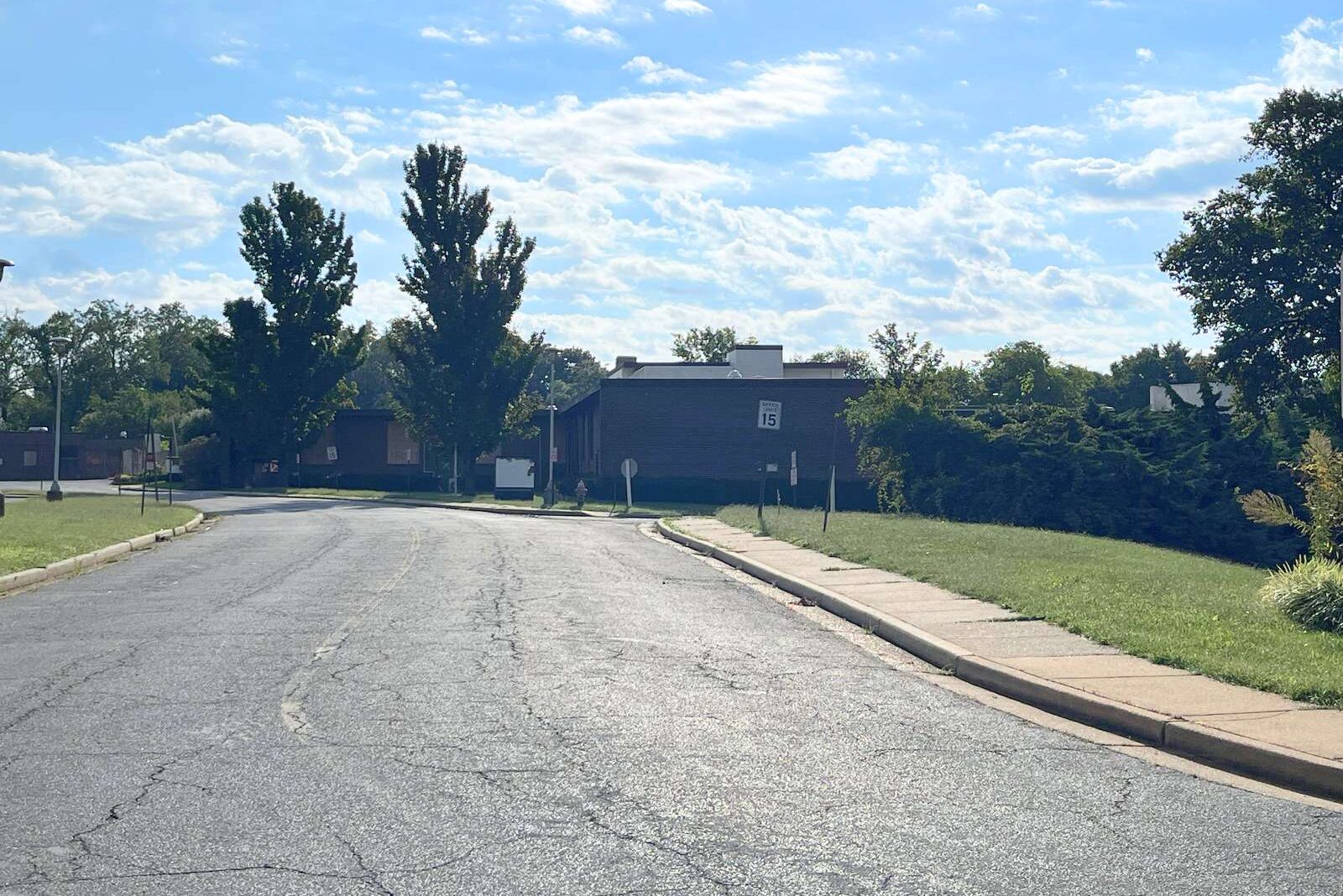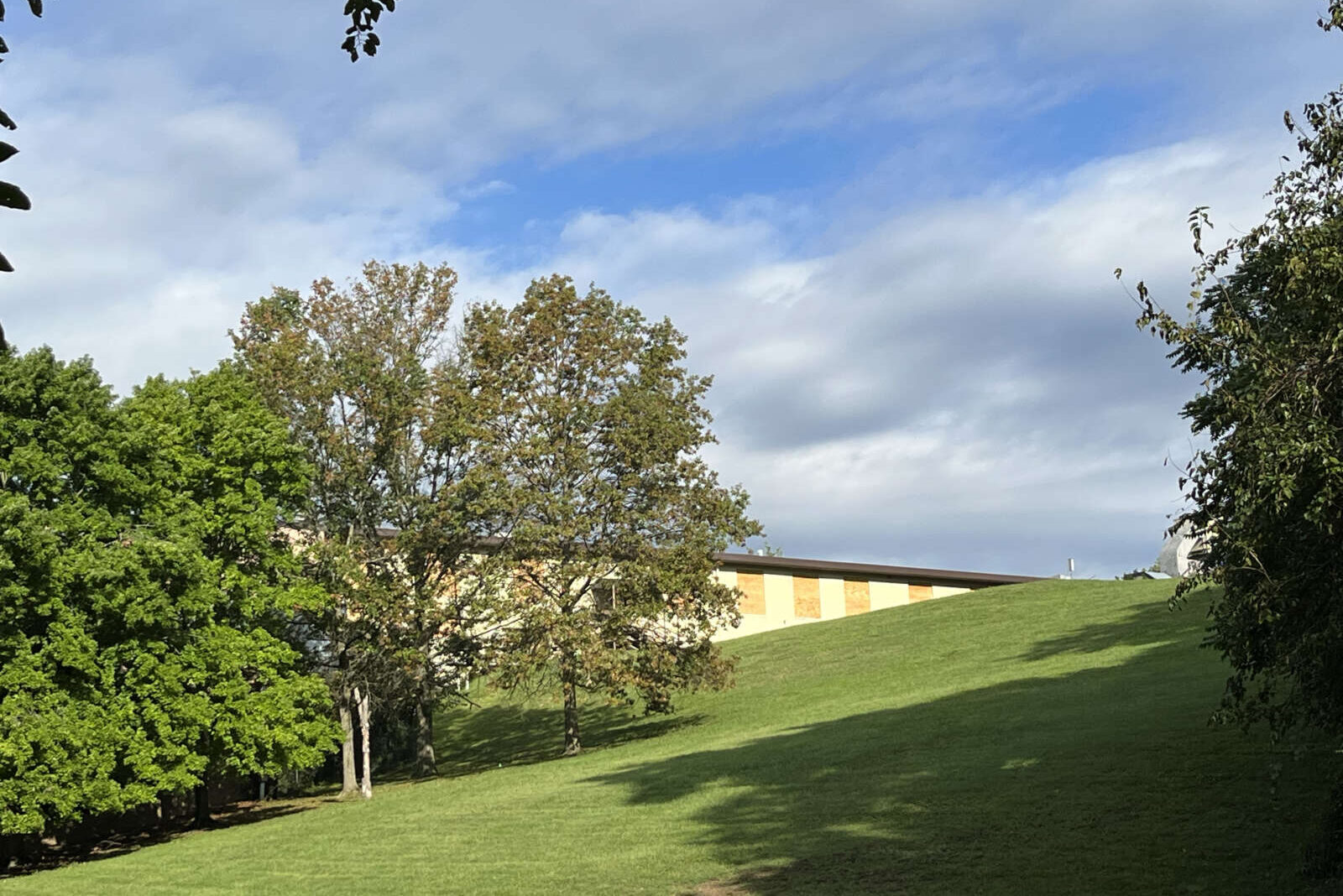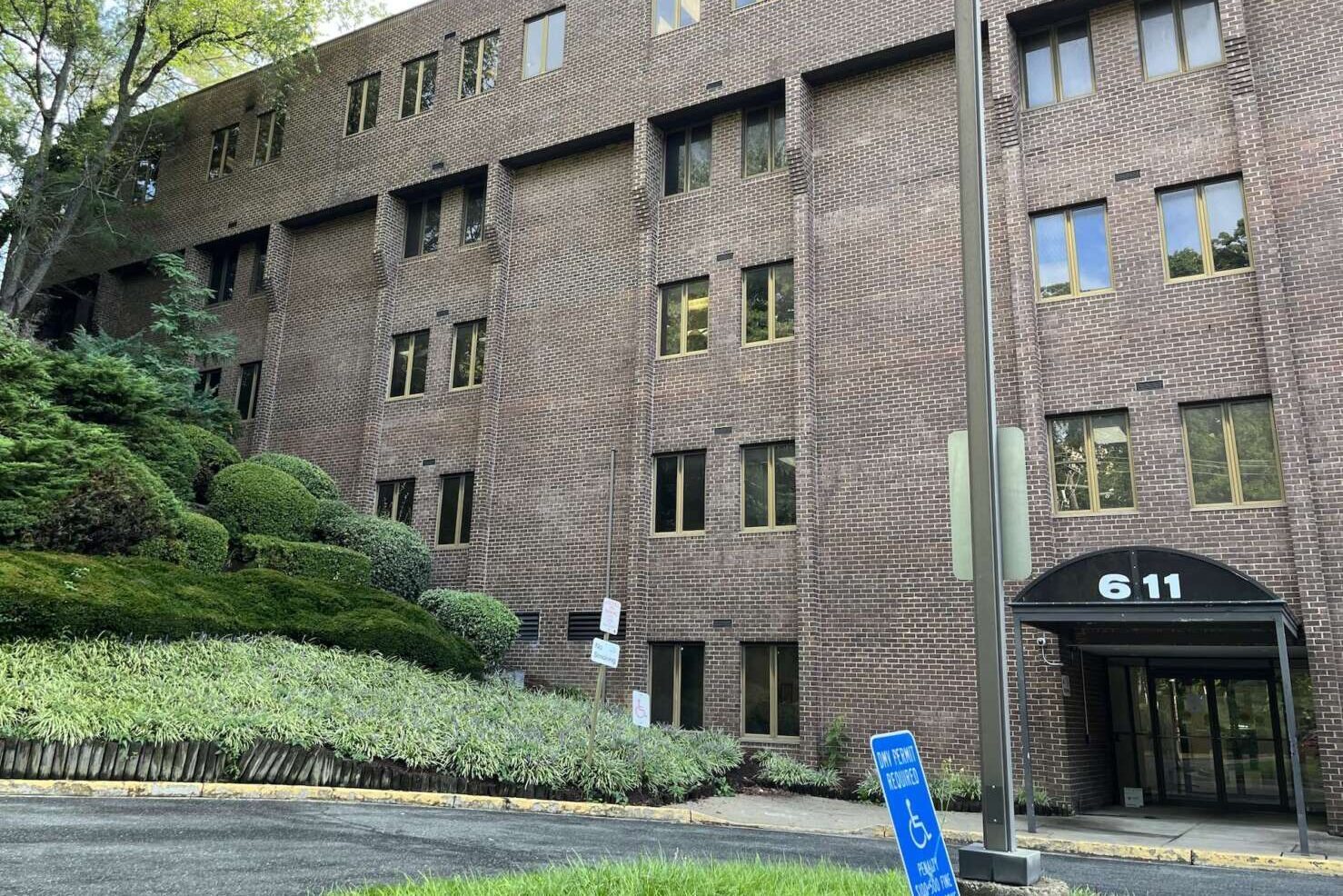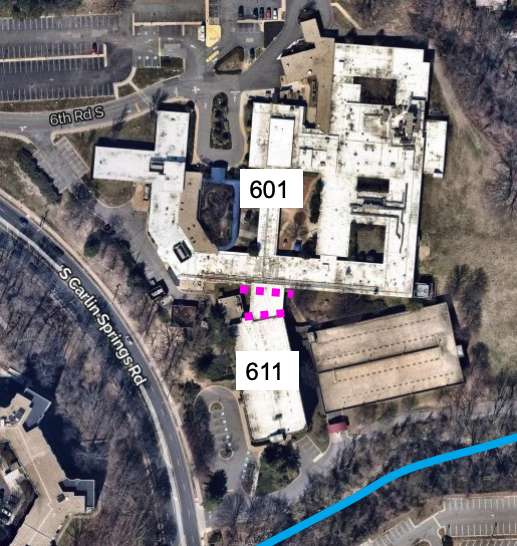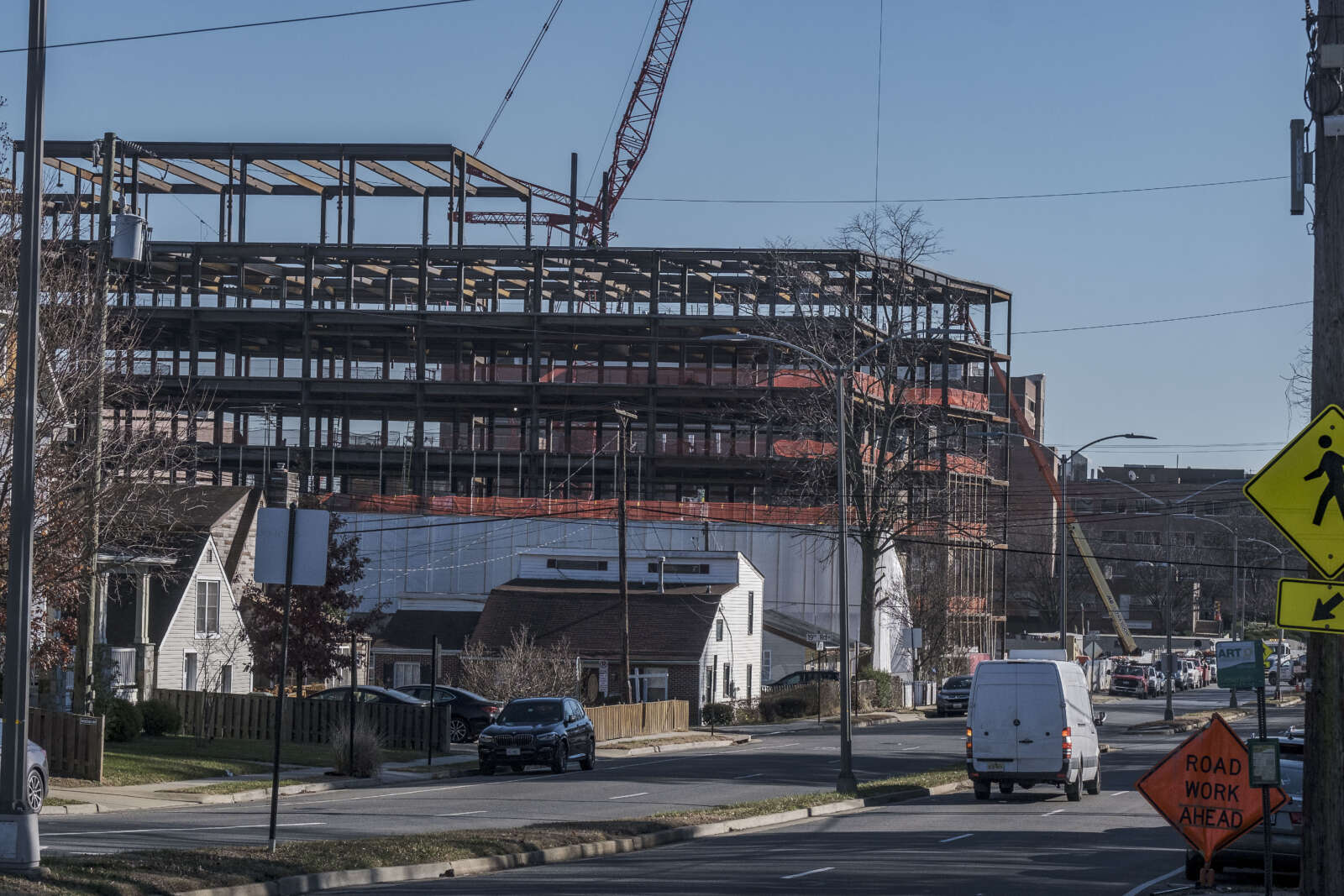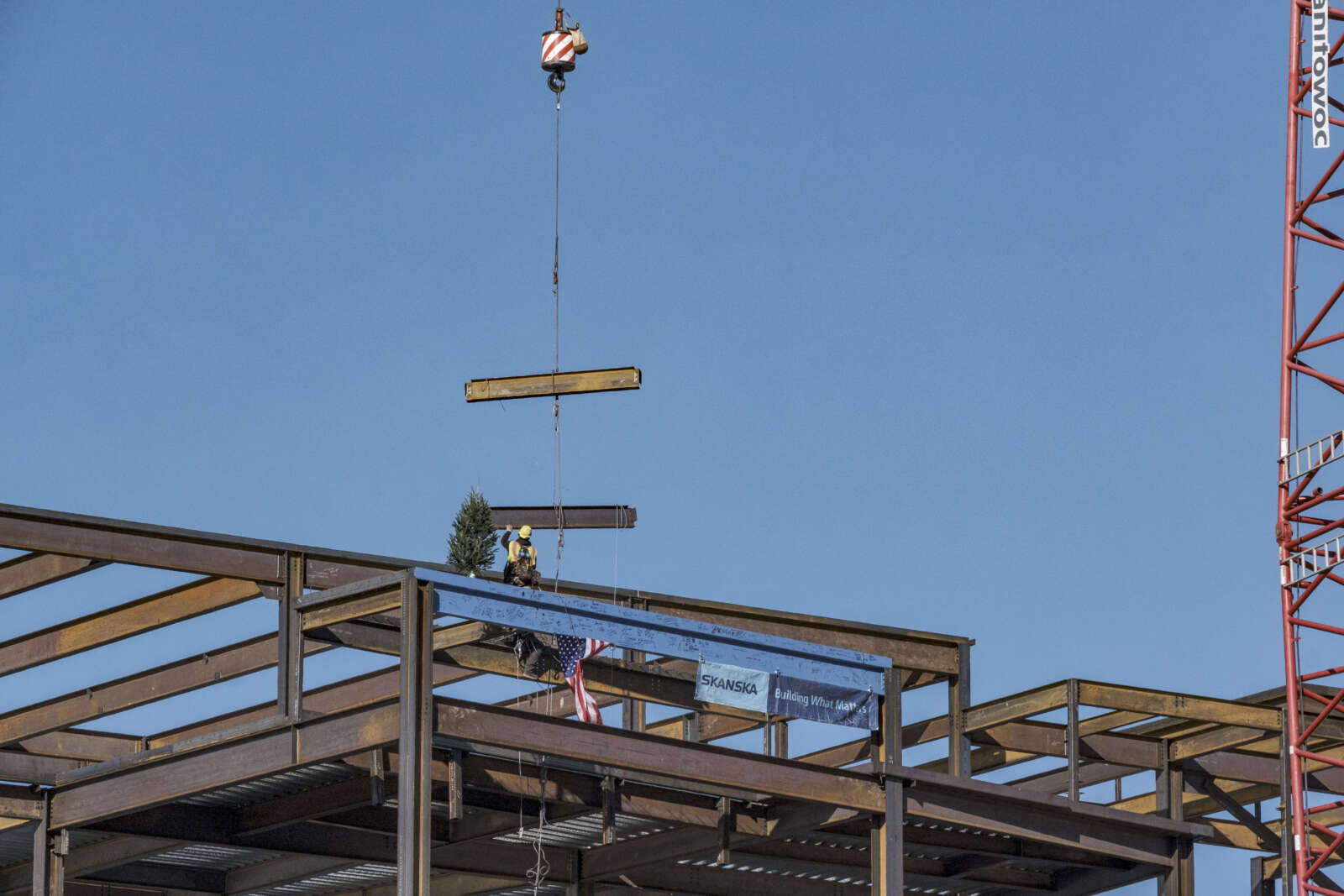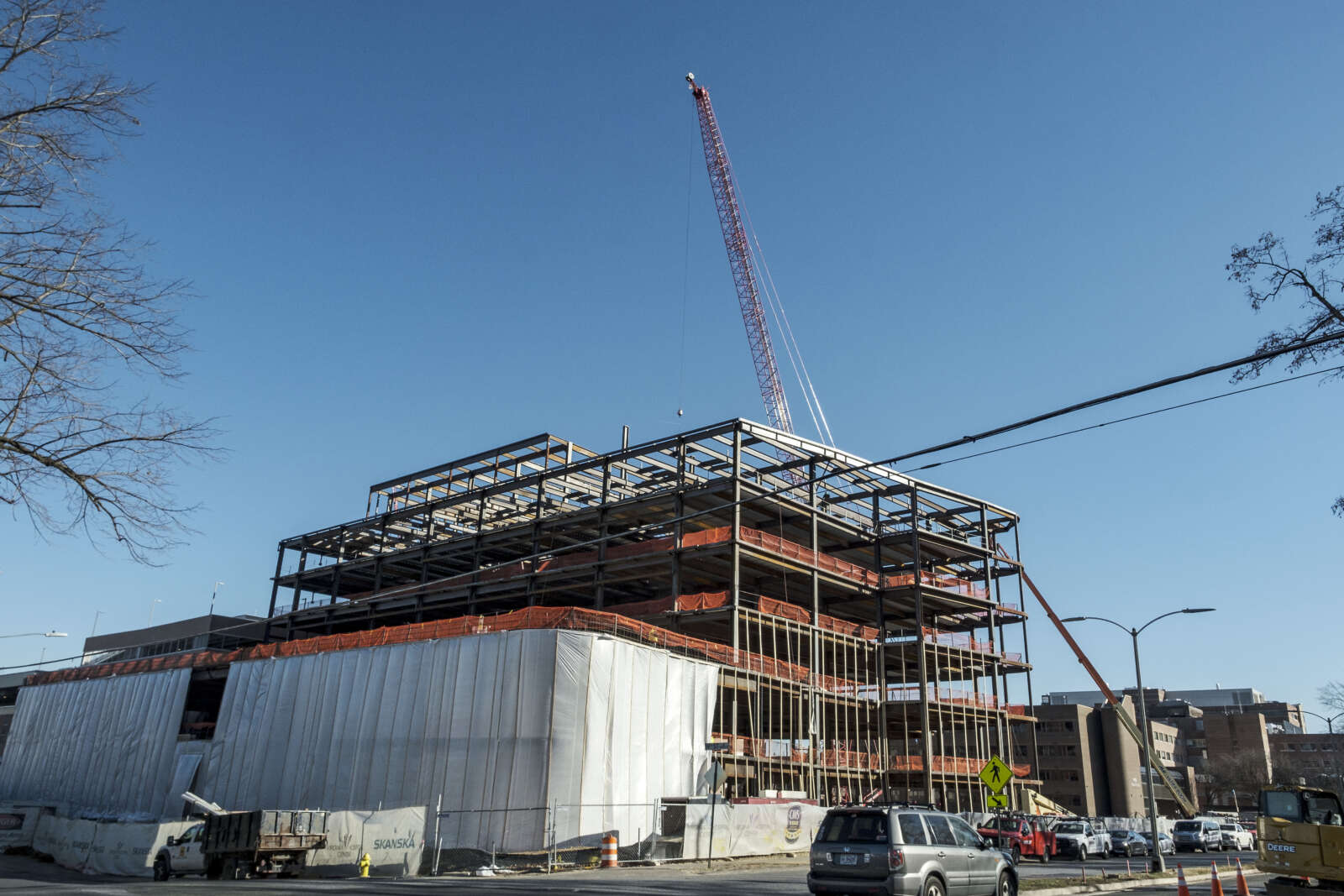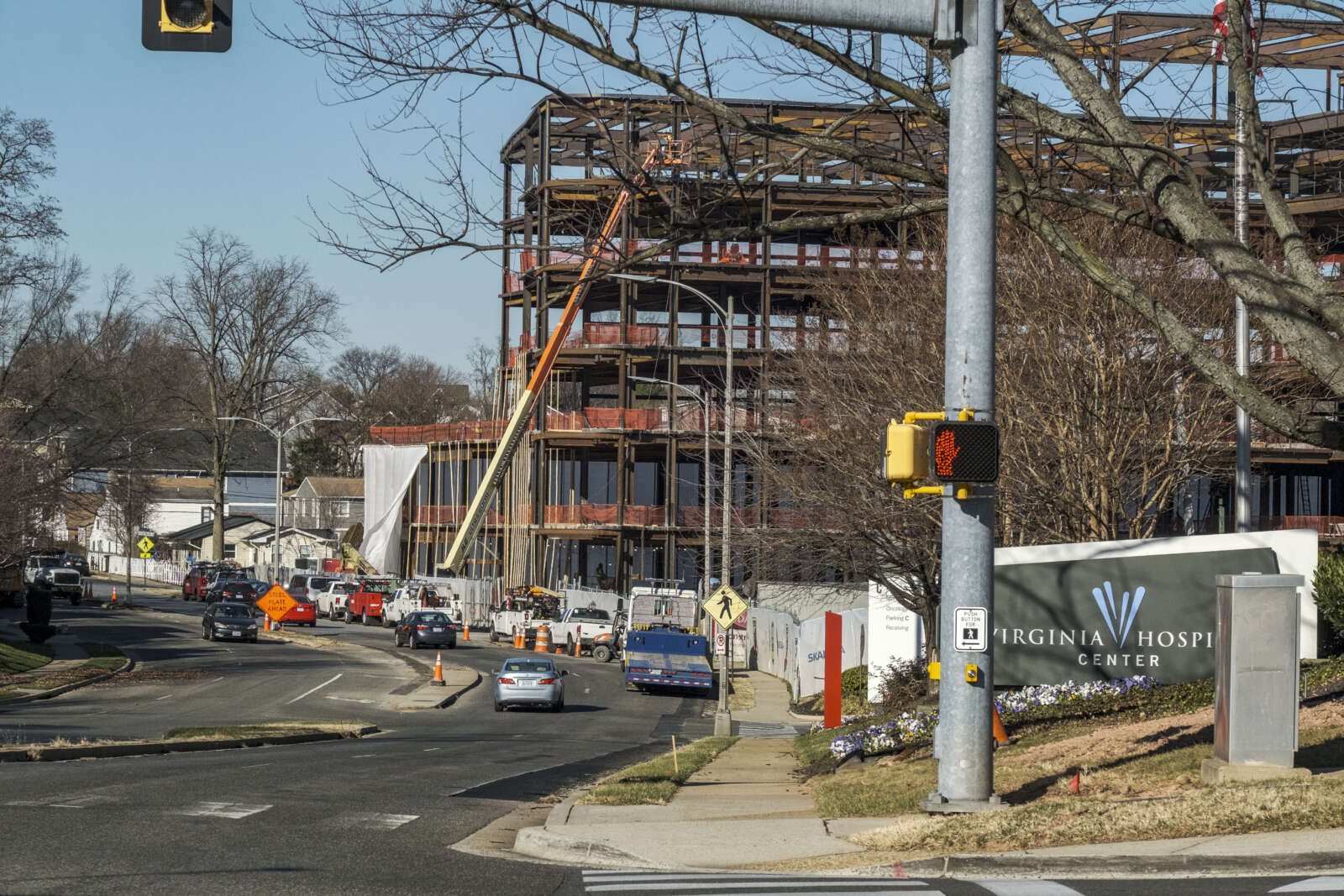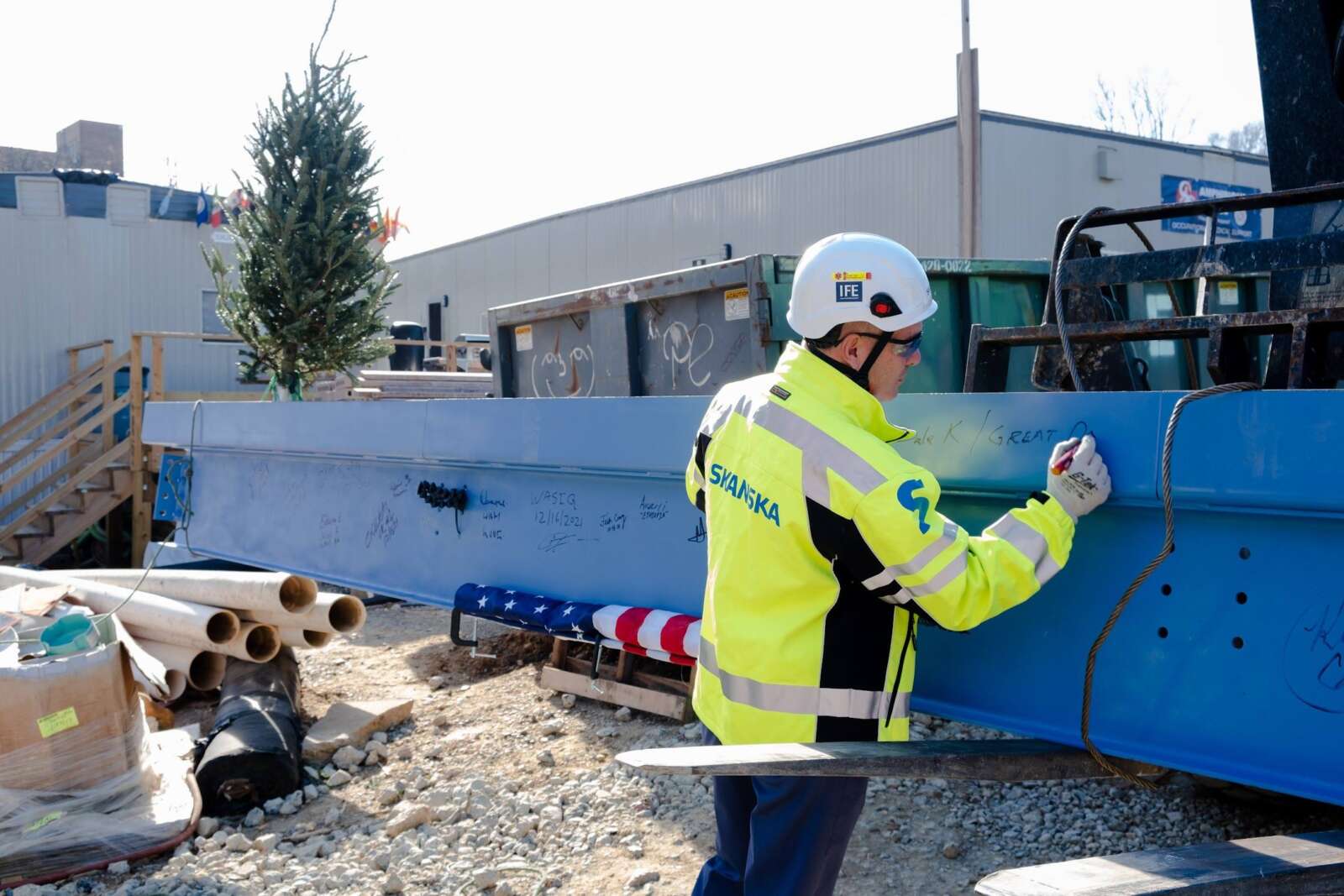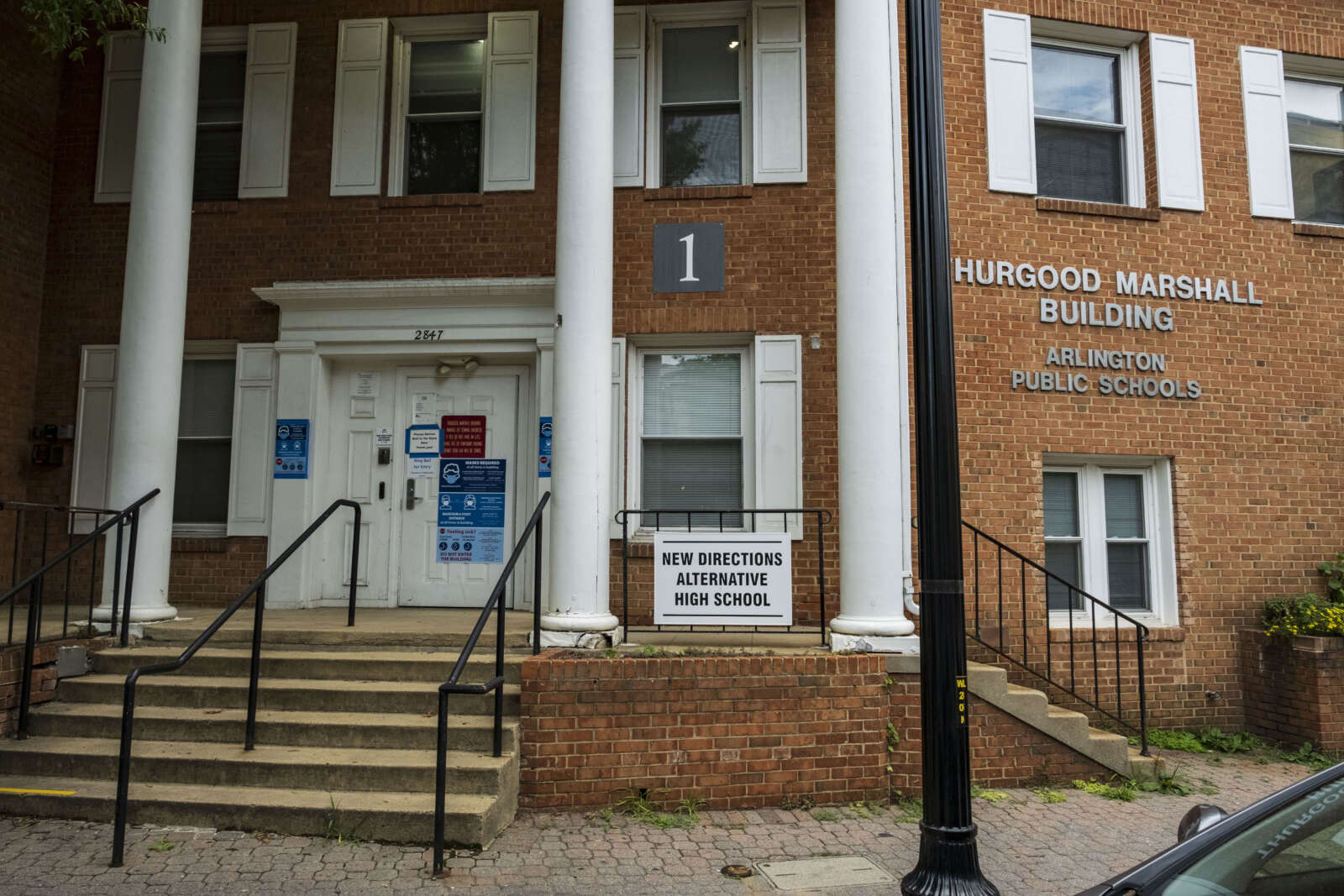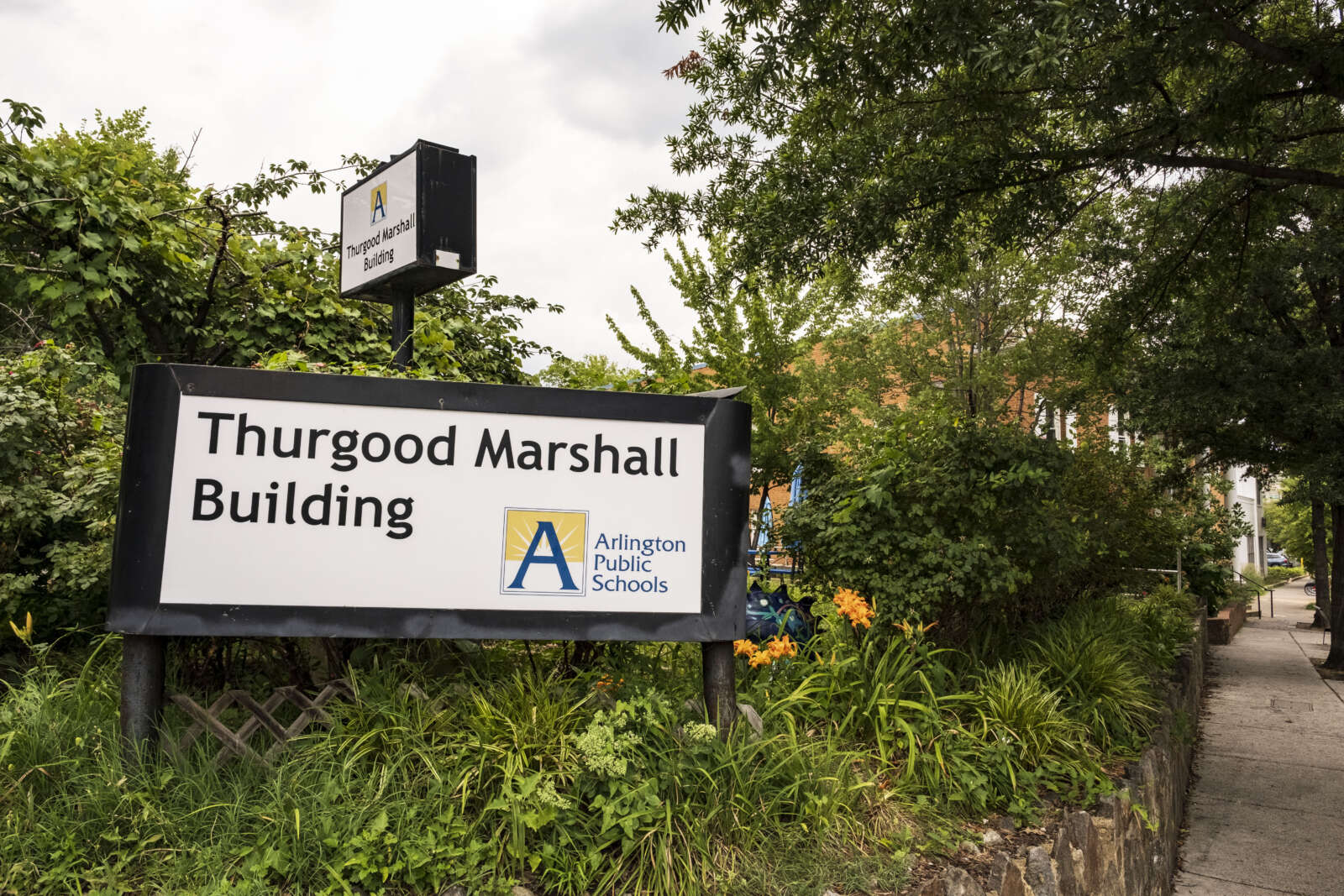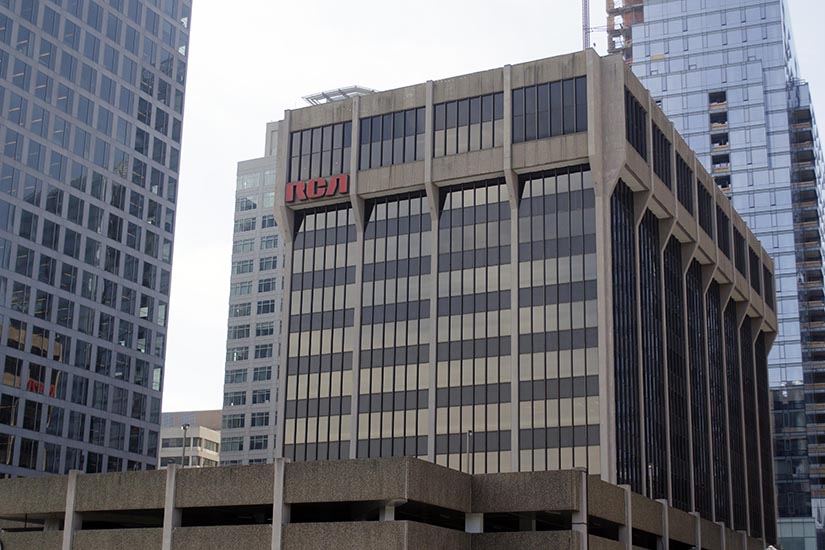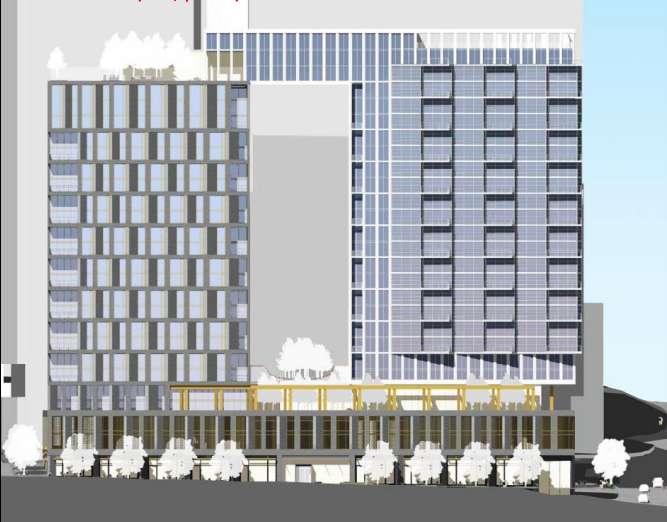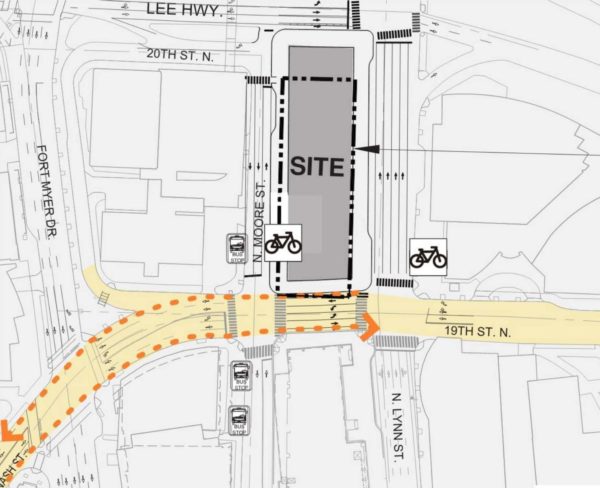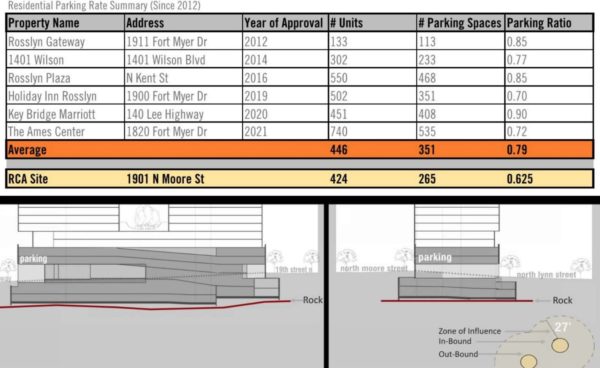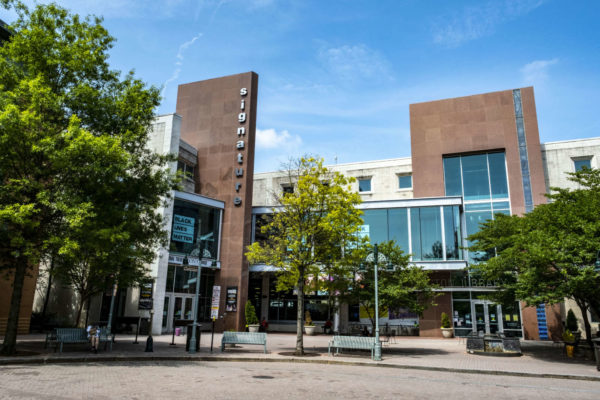
Arlington County could absolve rent for Signature Theatre for the last two years as the company struggles to move past Covid-era hits to sustainability.
This comes a decade after the county bailed out the Tony Award-winning nonprofit theater company twice in two years: a $250,000 grant in 2013 to help it pay off its real estate and business taxes and a $5 million loan, at a 1% interest rate, in 2014.
Tomorrow (Tuesday) the Arlington County Board is slated to discuss a trio of loan and lease agreements with Signature that could set the stage for the local nonprofit’s long-term plans.
The Board could agree to forgive $414,725 in delinquent payments from April 2020 through June 2022, when production halted due to Covid and when its long-time leader stepped down following allegations of sexual harassment.
In addition, it could agree to renew leases through 2057 for its main stage at 4200 Campbell Ave in Shirlington and a nearby storage facility at 3806 S. Four Mile Run Drive. If approved, the theater would not pay rent on the main building until 2041. It would continue using the storage facility rent-free for the duration of the lease on 4200 Campbell Ave.
The loan forgiveness would provide relief as Signature continues to build back after Covid.
“The theatre temporarily ceased productions at the beginning on the pandemic, and upon reopening remained under limited capacity in adherence with state and local policies in place,” a county report said. “To date, Signature Theatre has continued to experience financial hardship and ticket subscriptions have yet to recover to pre-pandemic levels.”
Signature would still owe nearly $3.3 million on the loan that it inked with Arlington County back in 2014. The county struck the deal with the theater, which was struggling to make payments on a $10 million loan it took out to outfit the interior of its venue on Campbell Avenue.
At the time, the county also forgave Signature for $411,000 in unpaid lease and utility payments and agreed not to collect rent for the term of the loan.
The Sun Gazette reported in 2014 that theater leaders pledged these issues would not happen again. The Washington Post quoted then-County Manager Barbara Donnellan as saying the loan made good financial sense, while arguing again those who characterized the loan as a bailout.
The new loan terms include a new repayment method based on ticket sales. Signature would pay $5,000 a month until it sells 20,000 subscription tickets and $10,000 a month until it reaches 30,000 tickets sold.
Despite these economic hurdles, Signature has plans to upgrade the storage facility on Four Mile Run Drive, where the theater company put on shows in the 1990s and early 2000s, but is now a storage building dubbed “The Garage.”
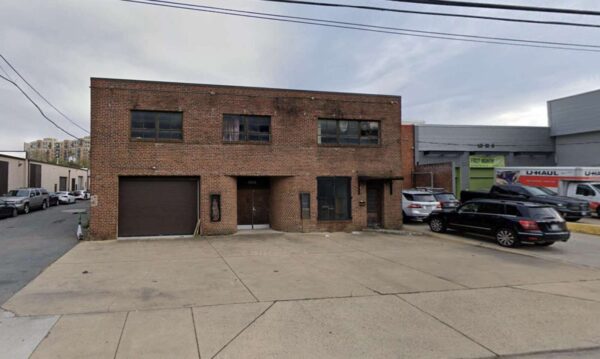
The Board is set to review a new lease that permits Signature to turn the building into a prop, scene and costume production facility and rename it for a donor who has committed $3 million to fund the upgrades.
“We’re very hopeful that, if approved, the long-term commitment from the county and Signature will mean that we can move forward with raising the funds to conduct the renovation,” Maggie Boland, signature’s managing director, told ARLnow.
Right now, costumes, props and scenes are made in a 900-square-foot space adjacent to the Shirlington theater. It is a tight squeeze and not ideal for design work being done, she says.
“This will be really transformative for our production team and what they’re able to do,” she said. “It’s exciting for us because it’s such an important part of Signature’s history. The space lends itself to this work because it’s a big open space that will be perfect for our needs in the long term.”
In a report, county staff said they may return to the Board with plans to expand that facility. If Signature fails to operate the property continuously or to maintain its main building on Campbell Avenue, the county will be able to end the lease early.


